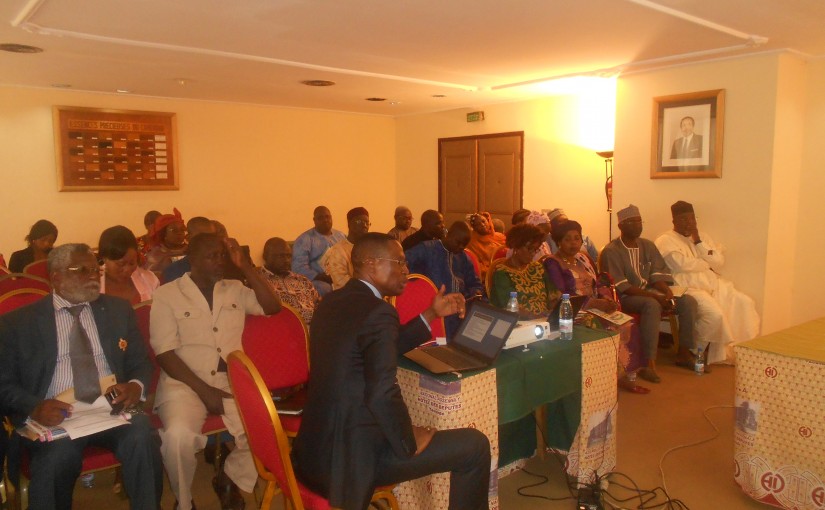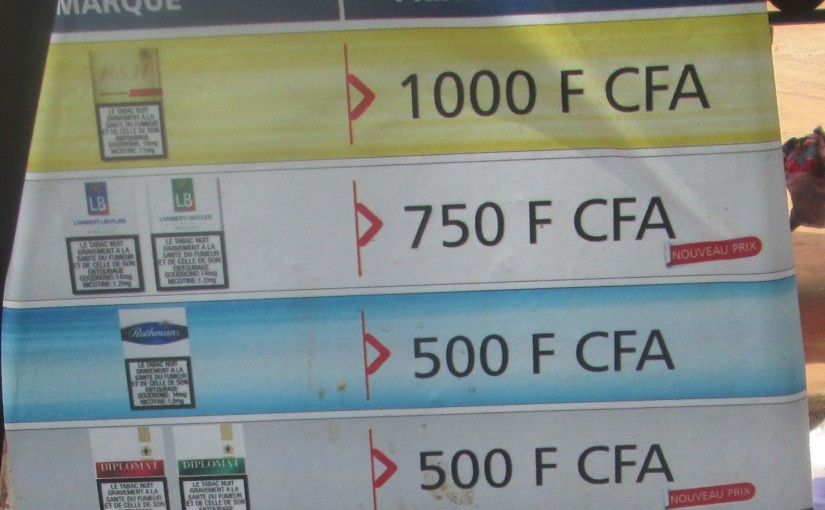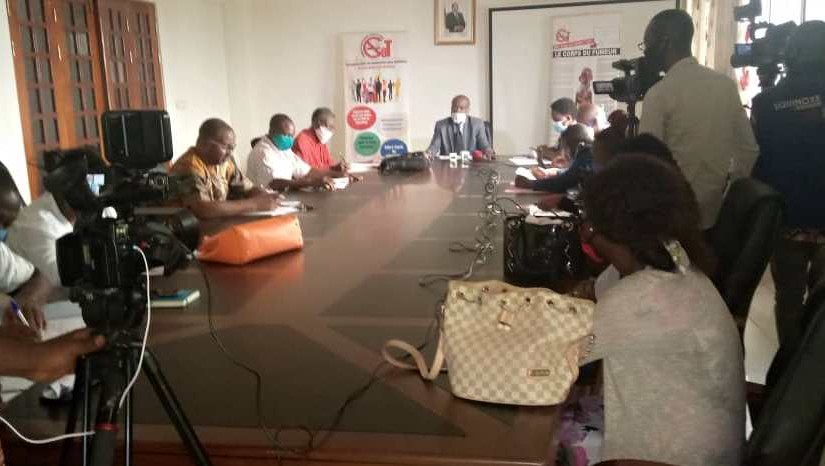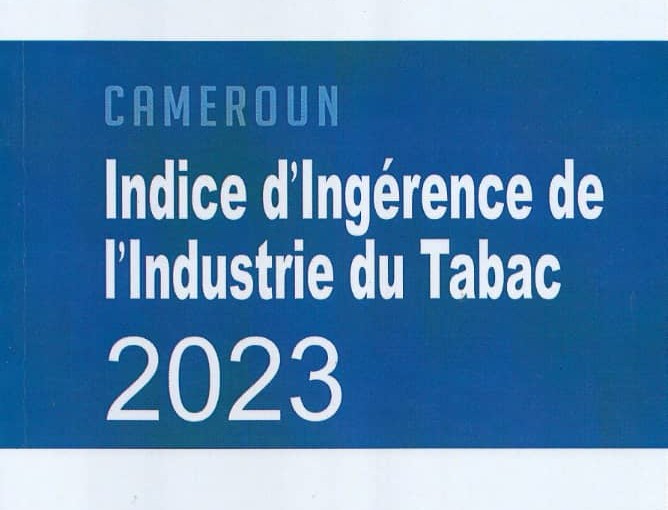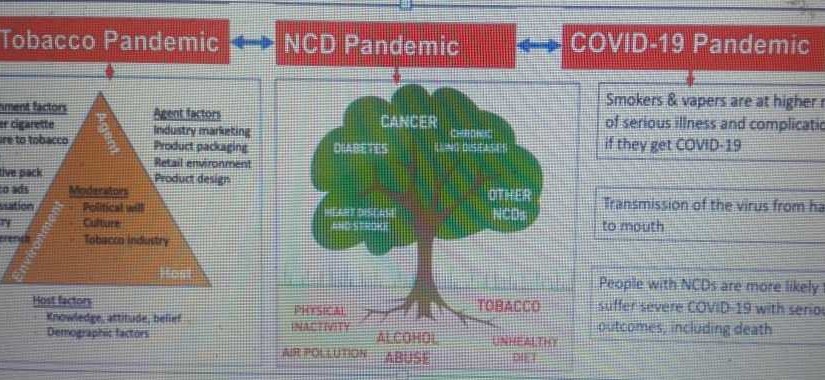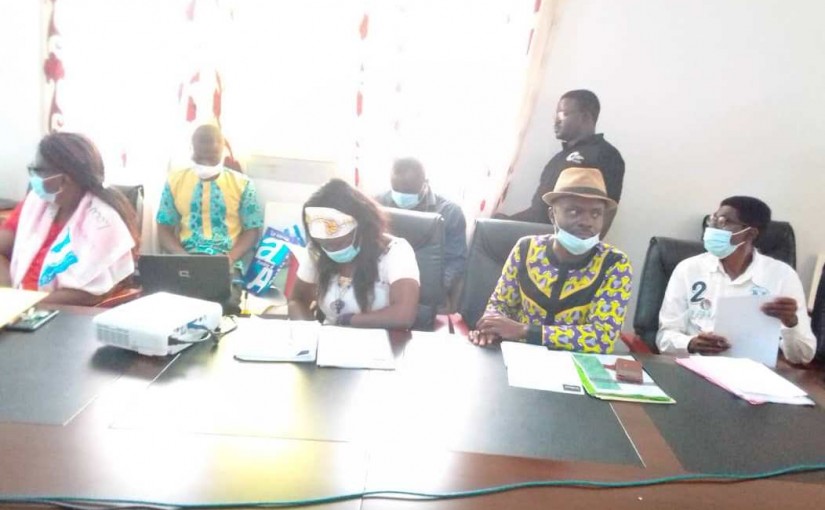The 17th World Conference on Tobacco or Health held from 7 to 9 March 2018 in Cape Town, South Africa and was a moment of exchange through workshops and presentations around the major issues related to tobacco control in the world. It was also a great moment of experience sharing for the different actors. The Cameroon Coalition for Tobacco Control (C3T) which was represented at these meetings at the highest level through its president, Dr. Flore Ndembiyembe presented its concept of media dialogues;an innovative concept in the strategy of mobilizing journalists in favor of tobacco control.
The title of the presentation was « From press conferences to media dialogues, Cameroon learned to be more effective in relaying tobacco control messages ». The concept was presented in a poster abstract by Caleb Ayong, former C3T Communication Officer, today, Communication Officer of the African Tobacco Control Alliance(ATCA).
The presentation was clear and concise; Cameroon ratified the World Health Organisation Framework Convention on Tobacco Control (FCTC) in 2006. Eleven years later, the country has still not adopted a national tobacco control bill, something the FCTC recommends be done three years into ratification. Knowing how powerful the media is in relaying information to the general public and to decision makers, the abstract demonstrated how the Cameroonian Coalition for Tobacco Control (C3T) has over the past years equipped journalists with information that can lead to the adoption of better regulation and legislation of tobacco and its products in Cameroon.It highlights how initially, C3T interacted with the media through Press Conferences. With time however, the coalition learned that it will communicate much more effectively if it transformed its Press Conferences to Media Dialogues. With such dialogues, there is the opportunity for both parties to discuss issues, contrary to Press Conferences where the journalists only receive information as it is given to them.
The abstract presentation notes that C3T eventually switched from Press Conferences to Media Dialogues. Instead of having a formal event full of protocol, journalists were introduced to a much more relaxed atmosphere where they could freely discuss tobacco control issues and crack a few jokes in the process.The principal result of this approach is more engagement shown in tobacco control activities by the journalists. When they are given the opportunity to be part of the discussion of the problem, they themselves come up with innovative solutions; solutions that are not only very effective, but also feasible vis-a-vis the hurdles a journalist will normally face while discharging his/her duties.
The major recommendation of the abstract is media engagement in tobacco control discussions. If they are given the chance to actively participate in such discussions, journalists get more engaged in the subject and relay information (to decision makers and the general public) much more effectively.
It must be remembered that the concept of media dialogue launched in 2015 has already enabled more than 400 Cameroonian journalists to take an interest in tobacco control issues.
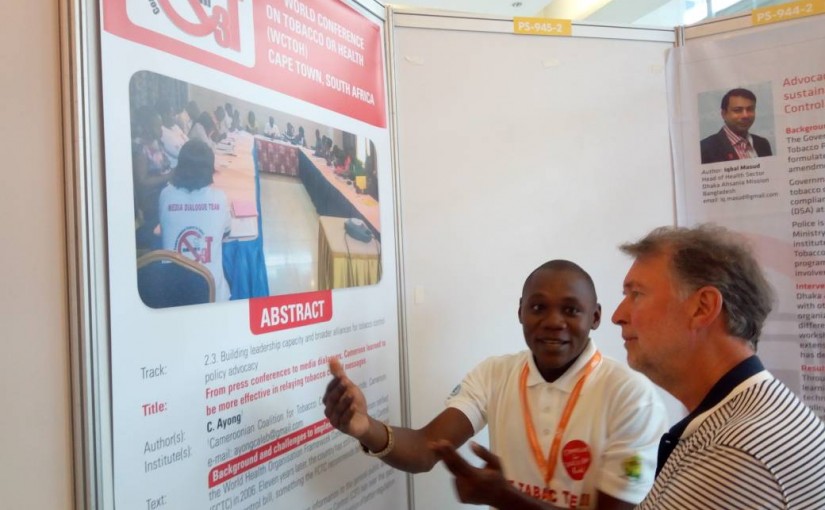
 (
( (
(